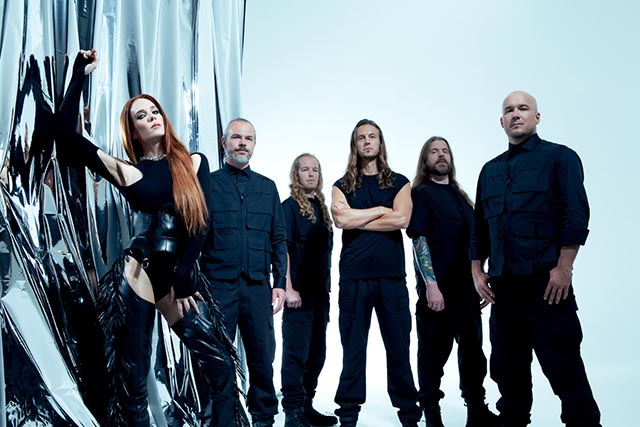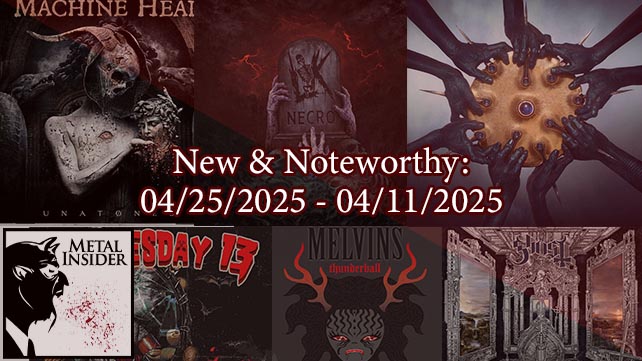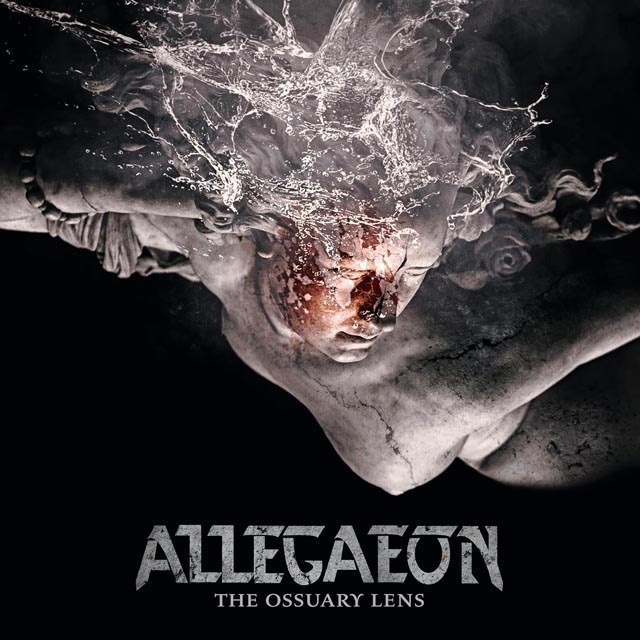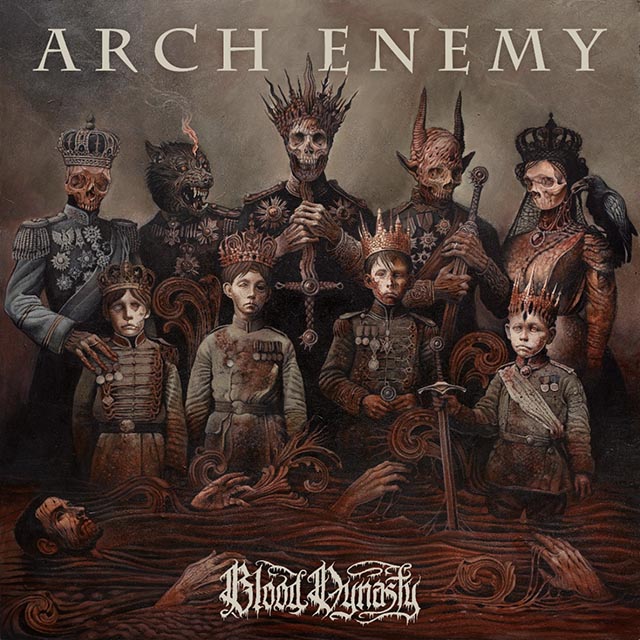
Let’s be honest, sometimes metal fans can be a bit snobbish. For instance, Rolling Stone could publish a list of the 100 top metal albums of all time that does a marvelous job showcasing the diversity of the genre (which they did), and fans can still find something to whine about. Yet many of those readers probably don’t realize how much work actually goes into compiling such a list, especially when said editorial is for an enormous brand like Rolling Stone.
That’s why we wanted to take a break from overanalyzing the recently published editorial, and actually speak with RollingStone.com senior music editor Hank Shteamer and senior music writer Kory Grow about what it took to bring the “100 Greatest Metal Albums of All Time” list to life. Check out what the two had to say about the overall experience, as well as share their own thoughts on the album rankings, below.
What inspired Rolling Stone to determine the “100 Greatest Metal Albums of All Time” in the first place? Why make such a list now?
Kory: Hank and I are both metalheads. My introduction to metal was around 1991 when I saw the “Wherever I May Roam” and “Mr. Tinkertrain” videos on MTV. They just hooked me. I’ve spent much of my writing career covering metal, including a stint at Revolver and years writing for Decibel, and when Hank started here we bonded quickly over our mutual love of metal. Rolling Stone has a lot of institutional lists (the 500 Greatest Albums of All Time, the Greatest Hip-Hop Songs, etc.) and for whatever reason they’ve never done a metal list. We’ve been batting around the idea of the list ever since Hank started here and earlier this year we saw a window in our production schedule where we realized we’d have enough time to do a metal list properly and jumped on it. To give credit where credit’s due: It was Hank’s idea. Now was just the right time.
Hank: In terms of the inspiration, I would add that once I started at Rolling Stone in 2015 and got to know Kory and some of our core freelancers, I felt we had a pretty good roster in place to do this in a way that felt both comprehensive and current. Kory and I bond over a lot of more modern/extreme metal, as well as the basic food groups like Metallica and Sabbath, but I’ve been impressed over time by his deep knowledge of the older, less fashionable stuff (from Diamond Head to Sodom). I felt like we could use that knowledge as our base and then build from there.
What was the process like behind making this list? How was the ranking of the albums determined, and how was the writing process delegated?
Kory: We started by making a long, long list of what we thought it would look like. Then we looked at all the big metal lists out there – Chuck Eddy’s book, Ian Christe’s genre lists in his book, other websites, etc. – to make sure we weren’t forgetting anything. From there, we set the ground rules that we laid out in the intro – no hard rock, only consistently great albums – and found that we could make room for a few more pure metal titles. We made another list and sent it out to some friends we trust as well as writers like Christe, Chris Weingarten, Adrien Begrand, Steve Smith, Rich Bienstock, Brittany Spanos and Suzy Exposito, among others, who gave their opinions. We made another version of the list, and then I reached out to some artists for their perspectives. We got Top 10 lists from Ozzy Osbourne, Rob Halford, Lars Ulrich (who gave us a Top 15!), Corey Taylor, Joe Duplantier and Deafheaven’s George Clarke to see what artists from different generations consider the best metal. It was enlightening. From there, we made another list, consulted with the other editors here at Rolling Stone and made the final ranking with their input.
It was a two- or three-month process. As for who wrote what, Hank and I claimed the ones we love the most first and then sent the list out to the writers who asked for their favorites and we divvied the rest out.
What was the most challenging part of compiling such a feature?
Kory: Setting the parameters of what is and what is not metal and then just dealing with the fact that 100 is a very small number. There are so many albums I wish we could have put on that just missed the cut.
Hank: Yeah, we had endless discussions about bands like AC/DC, Guns N’ Roses, Kiss and Van Halen. To be clear, by excluding some of these artists, we’re not trying to slight them or downplay their importance to the larger world of music that surrounds and feeds into metal; we were really just trying to get at what we felt was some essential spirit of metal that is very present in, say, Sabbath from the get-go and maybe less so in AC/DC. Where any listener draws that line is obviously a totally subjective thing – all we tried to do was decide on parameters that made sense to us and abide by them.
Out of all the albums included, some might take the biggest issue with Evanescence’s Fallen being included. Were there any strong objections from any of the writers about including this (and if so, what arguments were made in favor of its inclusion)? Were you afraid of any backlash from including this album?
Kory: I’ve seen the most outrage over that and Avenged Sevenfold, which to be fair, are Numbers 99 and 100. I wonder if people would be so upset if they were ranked higher and if LPs with a little more street cred were in those positions. Whatever. People who are unhappy need to understand that there’s a whole world of metal beyond their iTunes playlists. Evanescence’s Fallen is a favorite album for a lot people who may not like Emperor and Lamb of God, but that doesn’t make it less worthy. Also, perhaps people who are upset ought to read the blurb to see why it’s included on the list. None of our writers complained about including it; if they were unhappy, they kept it to themselves. Brittany Spanos, who wrote it, did a bang-up job, I should add. As for being afraid of backlash, no. I expected it. I knew it would be the one people would react to most. As the list’s intro says, metalheads are passionate people – they will fight about what is and what is not the best metal to the death. It’s great. Bring on the debate!
Hank: Getting away from Evanescence, Avenged and so on for a sec, I would add that the mainstream/underground divide in metal has widened to an almost absurd degree in the past five or 10 years. Nowadays it’s very common for super-underground stuff to be praised unequivocally online while super-mainstream stuff just gets sort of waved off and disregarded. As a listener, I’m just as passionate about big bands like Metallica, Mastodon, Tool and Iron Maiden as I am about resolutely obscure/extreme/avant-garde artists like Portal, Revenge, Krallice, etc. (It’s been this way for me since the early ’90s, when my regular listening diet included Deicide, Disincarnate and Dazzling Killmen, as well as Megadeth, Rush, Danzig and Stone Temple Pilots.)
In general, in discussions surrounding metal, I’d like to see a little more focus on quality and a little less focus on scene politics and audience size. There are tons of big bands that are great and tons of small bands that are terrible, and vice versa, and it grows a little tiresome when I feel like lines are being drawn based on totally arbitrary factors. I’m just looking for good music, and if I’m not the world’s biggest Evanescence fan, I can absolutely see why they’re significant to the development of metal in the past 15 years or so. To get back to the RS list, one thing I’m proud of is that it covers a very wide spectrum and really tries to highlight the best, most impactful albums from each scene, style, period, etc.
Were there any albums in particular that you were surprised ended up on the list (or were ranked as high as they were)?
Kory: Naked City was an interesting choice that came via Mr. Weingarten. It’s left of center and out of the box and should totally get people thinking about the boundaries of metal. More than anything, I’ve been surprised there hasn’t been more complaints about that one and that it’s all focused on poor Amy Lee. Anyway, that Naked City record is great. I suppose Nightwish was surprising to me, too, because I never listened to a lot of their music. But hey, our voting pool made a strong case for it, and I’m happy it’s there. Nothing else is really surprising to me on this list.
Is there one album you’re the most excited about being included in this list (an album you possibly had to fight a little extra hard to get included)?
Kory: The most left of center record that I pushed for was Soundgarden’s Louder Than Love (and I should add that was before Mr. Cornell’s death). I’ve always been a huge fan of that record. Plus, it’s notable for inspiring “Enter Sandman.” I’m happy Carcass, Neurosis, Life of Agony, Converge, Sodom and Celtic Frost made the list; I’m a sucker for the dirtier, gritty stuff like that.
Hank: Morbid Angel’s Covenant has been a favorite of mine since I first heard “Rapture” on Headbangers Ball, so it was exciting for me to be able to advocate for that and write it up. To me, that album sums up everything I want in a metal record: insane energy, seething emotion, super catchy songs. Helmet’s Meantime is another one I just adore and am happy to see among the more conventionally “metal-y” choices – Kory and I did have a few (mostly) good-humored debates over that one.
Is there an album that ultimately got left off that you wish made the final list, or an album you wish got ranked higher?
Kory: The record I still wish made the cut was Dissection’s Storm at the Light’s Bane. It has one of the most devastating guitar tones I’ve ever heard. Other that, I came to terms with some of my favorites not making the cut weeks ago.
Hank: That’s a tough question because I often gravitate toward what I’d guess I’d call non-canonical choices (for example, I greatly prefer Entombed’s Wolverine Blues to Left Hand Path), and I didn’t really have much desire to impose those kinds of personal idiosyncrasies on what is supposed to be more of a general-audience list. Same goes for something like Gorguts’ Obscura, Confessor’s Condemned or Coroner’s Grin – albums I love deeply but ones that I admit have very niche appeal. In retrospect, one band I would have liked to have found a place for is Crowbar: I think they’re a truly classic metal band, though I’m honestly not sure which album I would have lobbied for. So many masterpieces to choose from: the self-titled, Odd Fellows Rest, Sonic Excess, etc.
What is the one thing you hope readers will take away from reading a list such as this?
Kory: I hope that they can put aside their prejudices and maybe discover some records they might not have checked out before. Also, I hope they enjoy the writing because we had some top-notch critics working on this. I think the blurbs are fun and informative. Most of all, I hope people walk away from this list with a new understanding of the spirit of metal.
Hank: What Kory said. I guess the takeaway could be something like: There’s always more to learn about this style. Dig what you dig but don’t be so quick to draw lines in the sand. Passion for metal (or any other style of music) doesn’t have to equal snobbery and elitism.






